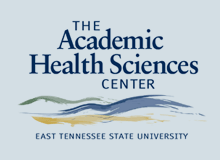Abstract
Introduction:
The objective of this study was to measure virtually-based objective structured clinical exam (OSCE) pass rates of student pharmacists who received remote, synchronous instruction on medication reconciliation compared with OSCE pass rates from the previous class, who received face to face synchronous instruction and OSCEs. The secondary objective was to measure student perceptions of remote instruction and OSCE preparation.
Materials and Methods:
Second year student pharmacists attended four online preparatory labs to learn and practice the process of performing a medication reconciliation. A virtually-based OSCE was used to assess student competency of identifying the primary or life-threatening medication related problem (MRP). Failing to identify the MRP represented a “kill point” and an automatic failing grade. A brief 10-item survey designed to measure student perceptions was sent to all participants post OSCE.
Results:
Seventy-seven students completed the OSCE and the overall pass rates were similar between the 2020 and 2019 class years (97% vs 94%, respectively; p = 0.24). Survey responses showed students lacked confidence, preferred face-to-face learning rather than online and most described their remote environments as not conducive to learning.
Conclusion:
Online instruction and assessment was at least as effective as traditional face-to-face methods. however the virtual-based platform was not preferred by learners.
Recommended Citation
Hess, Rick; Covert, Kelly L.; Highsmith, McKenzie Calhoun; Trotter, Jennifer; and Cross, Brian
(2021)
"Effectiveness of an Adapted Virtual Medication Reconciliation OSCE Compared with In Person OSCE,"
International Journal of Health Sciences Education,
8(1).
DOI: https://doi.org/10.59942/2325-9981.1122
